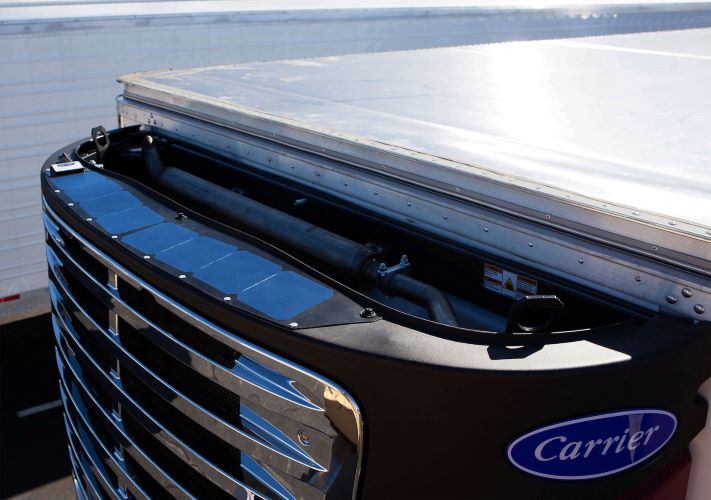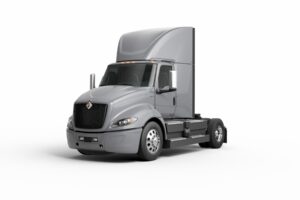ATHENS, Ga. — Optimized to deliver more power faster, Carrier Transicold’s newest solar-charging system for transport-refrigeration-unit (TRU) batteries features an innovative design that conveniently fits on top of the transport refrigeration unit TRU. Carrier Transicold is a part of Carrier, a global provider of innovative heating, ventilating and air conditioning (HVAC), refrigeration, fire, security and building automation technologies.
The new TRU-Mount Solar Charging System delivers 2.0-amp power delivery by combining ultrapure silicon cells with a high-performance charge controller.
“With a significantly smaller footprint than our prior solar panels, the new system provides up to 18% greater power delivery for faster, more complete charging of a 12-volt TRU battery, helping ensure uninterrupted performance,” said Jason Forman, associate director of sales and marketing, performance parts, Carrier Transicold.
Solar panels are being widely adopted by refrigerated haulers to help offset battery draws from ancillary devices such as fuel-level sensors, interior trailer lighting and telematics systems. During periods when the TRU is not running, such power draws can potentially drain the battery too low to start the TRU engine, resulting in a service callout or battery replacement. Solar panels can also help conserve fuel by minimizing the need to run the TRU engine to charge the battery.
The innovative panel design provides a custom fit on the narrow, curved top surface of Carrier Transicold X4- and X2-series trailer refrigeration units and Vector 8000- and 6000-series units. The charge controller is integral to the panel, which simplifies installation.
“The location of the TRU-Mount panel has multiple advantages,” Forman said. “The lower positioning on the TRU makes it less susceptible to overhead scrapes that can affect trailer-top-mounted panels. Unlike some competitive units, Carrier’s TRU-Mount system is not suspended over the exhaust path, helping to avoid efficiency losses that occur when solar cells are exposed to high temperatures. The system also conveniently stays with the TRU if the TRU is removed and reinstalled on another trailer.”
The panel uses three engineered layers to maximize strength and efficiency. The light-trapping upper layer is scratch-, impact- and weather-resistant. The middle layer is composed of uncut monocrystalline cells that maximize output and minimize power loss from intermittent shading. The copper bottom layer serves as a heat sink that keeps the panel cooler for greater efficiency.
The Trucker News Staff produces engaging content for not only TheTrucker.com, but also The Trucker Newspaper, which has been serving the trucking industry for more than 30 years. With a focus on drivers, the Trucker News Staff aims to provide relevant, objective content pertaining to the trucking segment of the transportation industry. The Trucker News Staff is based in Little Rock, Arkansas.








